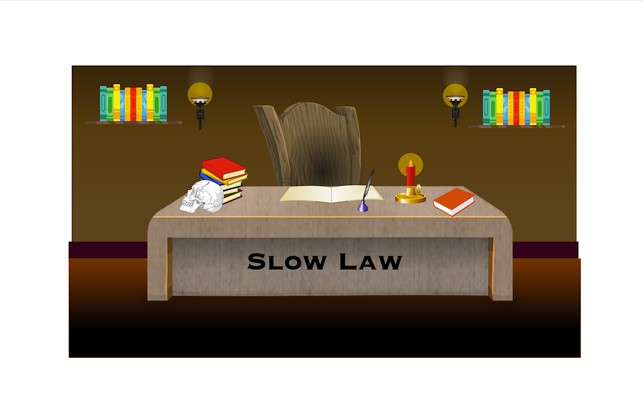Exploring the Slow Law Movement: A Traditional Approach to Modern Law
In a digital age dominated by legal technology and automation, a unique movement is gaining attention: Slow Law. This philosophy, prominently adopted by firms like Partridge & Partners, advocates for a return to pre-1945 legal practices, emphasizing traditional methods over modern technological solutions.
Understanding Slow Law
The Slow Law movement lacks a formal manifesto but is unified by a shared belief that the legal profession has strayed from its core values. Adherents reject contemporary digital tools, opting for typewriters, paper, and fountain pens instead of computers and smartphones. Communications with clients are also deliberately low-tech; documents are hand-delivered or sent via courier, with replies being sent through traditional postal methods.
Fee Structure and Client Relationships
In a departure from the billable hour practice, lawyers at Slow Law firms set their fees based on perceived value rather than time spent. This method often positions their services at the higher end of the market, reflecting a tailored approach to legal service provision.
James Partridge, senior partner at Partridge & Partners, explains, “We are one of about a dozen small, but growing firms, which have decided enough is enough with all this talk of efficiency, AI and automation, and anything else that detracts from our core purpose of being lawyers.” Despite the unconventional approach, Partridge reports steady growth, attributing it to a niche market that appreciates their methodology.
The Client Experience
Notably, Partridge asserts that many clients are responsive to this traditional approach. He shares, “In fact, our clients love it. Clearly, it’s not for everyone… but those who value our approach are actually quite large in number.” This sentiment resonates particularly well with some General Counsel, who, although accustomed to quicker responses, recognize the commitment and quality in slower, more deliberate legal services.
Navigating Modern Legal Landscapes
Working alongside other firms that leverage advanced technologies presents challenges for Slow Law practitioners. Partridge notes that they prefer to engage only in transactions free of digital demands from opposing counsel, further reinforcing their commitment to non-digital practices.
The Global Reach of Slow Law
The Slow Law movement has found its way into various global cities, including New York, Chicago, and Sydney, with Paris also becoming a hub by coincidence rather than intent. Partridge believes this international expansion reflects a natural counter-reaction to the rapidly advancing tech landscape, similar to historical movements against industrialization. He states, “Look at the Industrial Revolution,…from within that cauldron came the Arts & Crafts movement—an artistic and cultural development that eschewed mass production and embraced a more Medieval approach to design and manufacture.”
Family dynamics, as well, reflect a desire for a simpler, less technology-driven existence, reinforcing the idea that the Slow Law movement is part of a broader societal trend towards traditional values.
Conclusion
The Slow Law movement stands as a testament to the diverse approaches within the legal profession. While many firms embrace technology to enhance efficiencies, Partridge & Partners and its counterparts highlight a contrasting path that focuses on human connection, meticulous craftsmanship, and timeless practices. As Partridge aptly concludes, “As long as there are clients that like what we do, we shall keep doing it. In fact, from what we see and hear, it’s a rapidly growing movement.”
In a world leaning towards digitalization, the Slow Law movement offers a compelling alternative that honors tradition while fulfilling a specific clientele’s needs.
Other Noteworthy Updates
In related news, the UK’s Ministry of Justice has proposed an unconventional change, eliminating ‘Guilty’ verdicts in criminal trials to avoid offending individuals. Instead, all outcomes will be categorized as either ‘Not Guilty’ or ‘Not Guilty.’ This reform aims to create a more inclusive justice system, prioritizing sensitivity over traditional legal outcomes.
Meanwhile, Clifford Chance is tackling the challenges of remote work by converting unused office space into micro-apartments, enabling associates to experience both office and home environments simultaneously.

